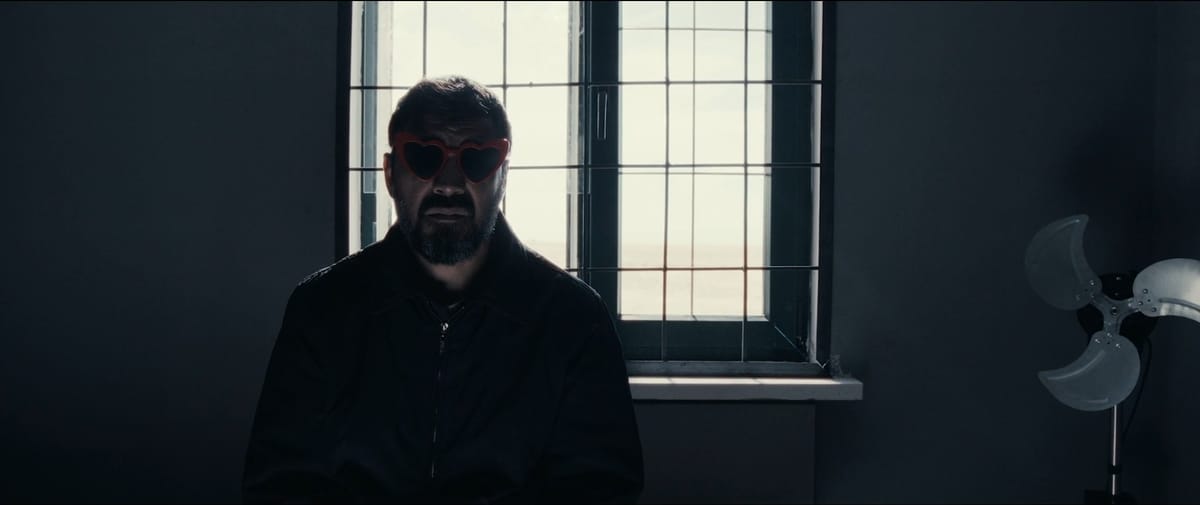Steppenwolf
"Is there any need for good? It's unnecessary."

Steppenwolf is a movie at war with itself. It doesn’t seem to know what to make of its own story, as what it seems to be saying shifts multiple times. On more than one occasion, Braiyuk (Berik Aytzhanov) responds to questions about death by laughing and pretending to fuck a large, floppy, plush dog. His brother (Yerken Gubashev) mockingly parrots Braiyuk’s words back at him moments before Braiyuk shoots him in an alluded to but unexplained previous arrangement. Late in the film, he kills a couple of bad guys, then does a small hip-waggling “dance” in a callback to his childhood. These little moments of absurdity clash especially hard with the setting, a brutal and barren area of Kazakhstan beset by a hierarchy of gangsters, with the unseen Taha lording over them all. It reads more as a post-apocalyptic landscape than a real place, dotted with burnt car husks and sparsely populated desert, and almost no people apart from Taha’s underlings. It’s as if they’re characters in a Borderlands game.
Which is fitting, as the central plot is essentially an escort mission. Timka (Timur Kim) has gone missing, and his mother Tamara (Anna Starchenko) is desperate to find him. Complicating that goal is her severely limited ability to communicate, a state which is never fully explained, but seems to be a combination of incredible trauma and an intellectual disability. She wanders into the nearby police compound just ahead of a terrorist attack, where escaped prisoner Braiyuk and a few of the terrorists agree to help after tricking her into offering a large monetary reward. Security cameras reveal he was taken by Max (Azamat Nigmanov), a notorious pimp and Timka’s father, which is only the beginning of their journey.
Read my full review on Pop Culture Maniacs.